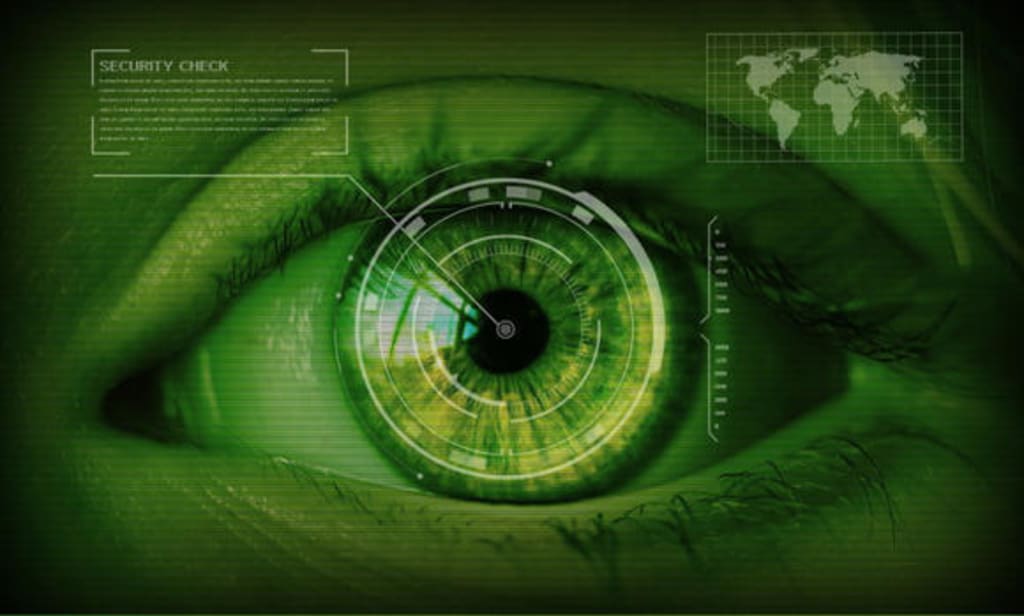Are you highly sensitive? Take the quiz and find out
Highly sensitive people don't have extra-sensory perception. What's the difference?

Editor's note: An earlier version of this article appeared on News Break.
A devoted follower of my Facebook page emailed me recently and asked whether I ever had been told I am a “highly-sensitive person.”
My initial reaction was to chuckle, for two reasons. One, a couple of years ago someone referred to me as “clairvoyant.” This person indeed knows I am observant, careful, and that I remember every little detail about everything.
In terms of these skills giving way to predicting the future or seeing things others do not see, however, I don’t call that clairvoyance. I call it being smart.
Others who have known me for as long as the person who made the “clairvoyant” comment have gone so far as to say they think I might be psychic.
Again, I’m flattered. But reporters, like detectives, are trained to connect the dots. We’re not psychics.
As opposed to being “clairvoyant” or “psychic,” good reporters and good detectives often hear they have “good instincts.” And that’s an “Attaboy” I’ve heard many times throughout my career.
The second reason I laughed when asked if I was “highly sensitive” is because as a child, early on, I came to associate, “Your son is highly sensitive” with “Your son is gay.’
I mean, come on! How many 1970s boys were described as “sensitive” or “highly sensitive” and then turned out to be gay 20 years later?
That said, I suspect many did not turn out to be gay.
So, I wondered — am I “highly sensitive” in the clinical sense?
The answer is a resounding yes, according to one test I took.
What it basically means is that you’re attuned to everything: Sights, sounds, smells, moods, expressions. You’re multitasking when it comes to recording and analyzing what’s going on around you.
Some handle being able to do that better than others. Some go into journalism. Police work. Military. Healthcare. Those professions seem to be good fits, if you can handle your “gift.”
But if you can’t handle your gift every day, all the time, or wear out from it, you can sit at home and write and pray the bills get paid.
Are you 'highly sensitive?' Take the online test
The test I took to learn whether I am “highly sensitive” (not to be confused with “hypersensitive”) can be found by clicking right here.
I want to quickly add that a psychologist on the Psychology Today website refers to the quiz as “respectable.”
“Though they’re often mistaken for one another, high sensitivity and hypersensitivity are entirely different ideas and have very little to do with each other,” Shawn T. Smith explains in a blog post.
“High sensitivity is a biological predisposition traceable to brain structures like the reticular activating system,” he continues. “It has little, if anything, to do with emotional sturdiness.”
I have found that, in particular, it is very difficult for people to get by with lying to me. Sometimes I let them think they got by with it. It's easier.
Nobody likes being lied to directly to their face, particularly journalists. So, when I’ve been lied to and I’ve called someone out about it, I’m not being “hypersensitive,” I’m stating a fact. Most liars do so to harm others.
How do I know when I’m right? Do I have ESP?
The short answer is, I don’t always know for sure if I’m right. I usually find out eventually.
Here’s what Smith has to say about almost always having that perfect read on somebody:
“It’s true that being an HSP tends to make a person more perceptive of other people’s moods. That can contribute to hurt feelings simply because the HSP has more emotional information to sort through. There may be the seed of something painful in that extraneous information.
“But being an HSP doesn’t condemn a person to emotional fragility. HSPs are no less capable than anyone else of developing emotional resilience and reliable coping skills.”
Let me tell you something: After four-plus years of cognitive behavioral therapy, sometimes as often as three times per week, I have all kinds of coping skills in my bag of tricks.
I am anything but weak. And not only am I strong, I grow stronger every day. And I know that’s very upsetting to some people.
Do difficult childhoods make for highly-sensitive people?
Back to the site where I took the “highly sensitive” test. The site is run by Dr. Elaine Garon, who began her studies into rhesus monkeys and people who are highly sensitive in 1991.
“I cited a study by Stephen Suomi about a minority of rhesus monkeys who are born with a trait that was originally called ‘up tight’ because they were more affected by being raised under stressful conditions,” Garon reports in a synopsis of her research. “Not only did they appear more depressed and anxious, but like depressed humans, they had less serotonin available in their brains, what anti-depressants correct.”
Garon said these “vulnerable monkeys had a genetic variation that results in lower levels of serotonin generally, and these levels are further reduced by stress. Sensitive humans have the same genetic variation.
She writes:
“Interestingly, that variation is only found in two primate species, humans and rhesus monkeys, and both are highly social and able to adapt to a wide range of environments. Perhaps the highly sensitive members of a group are better able to notice the subtleties, such as which new foods can be safely eaten and which dangers to avoid, allowing them to survive better in a new place.”
It’s true that many highly sensitive people had difficult childhoods, Garon reports.
“Since many HSPs have had difficult childhoods, often because no one understood their innate temperament, their persistent bad feelings due to that could cause them to feel even more uncomfortable, rattled, or annoyed in situations that bother all sensitive persons to some degree.”
Difficult childhoods can and do make for highly sensitive people. What defined my childhood?
An abusive, alcoholic father with a rare brain disease. Never-ending domestic violence. Angst due to moms cancer diagnosis when I was 8. I spent most of my fearing she would be dead soon. She died 26 years ago when I was 24.
I would argue that simply growing up with an alcoholic could leave a person with a diagnosis of “highly sensitive.” There is a ton of research about this.
Author Blaire Sharpe, who wrote a book on adult children of alcoholics, summed it up to me this way:
“When you’re used to living your life on edge, as children of alcoholics do, there’s a hypervigilance (an acute awareness of your surroundings).
“You’re always gauging what’s going on, scanning the crowd, analyzing micro-expressions. Once you get past using it as a protective mechanism, it can serve you well in life.”
Why I’m grateful for my struggles anyway
As I always say, and completely mean, I am grateful even for my struggles. I never will be the same again after living through some of the things I have lived through.
Does that mean I may never be able to form healthy relationships again? Possibly.
But I also am incredibly strong and growing more emotionally intelligent all the time, an area where for many years I was lacking.
Says Garon:
“Now, new research demonstrates that this genetic variation causing lower serotonin to be available in the brain also bestows benefits, such as improved memory of learned material, better decision making, and overall better mental functioning, plus gaining even more positive mental health than others from positive life experiences.
“The same mental benefits are also found in rhesus monkeys with the same genetic variation. Perhaps the best vindication for HSPs tired of being seen as weaklings or sick is a study by Suomi finding that rhesus monkeys with this trait, if raised by skilled mothers, were more likely to show ‘developmental precocity,’ resilience to stress, and be leaders of their social groups.”
About the Creator
David Heitz
I am a journalist with more than 30 years' experience. Here at Vocal, I write mainly for Potent, Vocal's cannabis magazine. I have a PTSD diagnosis and a medical cannabis card. I have lived in a penthouse and also experienced homelessness.






Comments
There are no comments for this story
Be the first to respond and start the conversation.